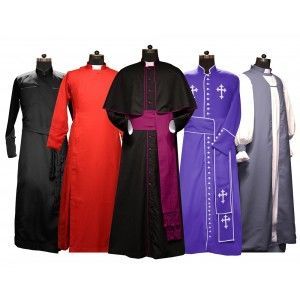
A careful examination of today’s Church in the light of the New Testament Scriptures exposes a culture of division existing in the Church between pastors and the multitude of believers.
Pastors are often considered first-best Christians equipped exclusively with spiritual gifts to function as active ministers while the multitude of believers are considered second-best Christians with no spiritual gifts to serve, but only as passive spectators in ministry.
This culture is termed as clericalism, a sinful practice which many church leaders condemn and want uprooted from Christianity. They consider its adverse effects on the Church.
Clericalism destroys the oneness of the community of Christian believers and the advancement of the gospel, as it makes believers relegate their ministerial gifts to the background. It also promotes corruption and unaccountability in leadership.
However, concerns are raised as to whether Christian leaders are willing to give up on the evil of clericalism as most of them are intentionally or unintentionally holding on to practices that firmly promote it.
Clericalism appears to be initiated by the ceremony of ordination which is believed to confer the ability or gift of acting as Christ, changes the status of a minister and makes him enter into the membership of the ‘clergy’.
In his book, Clericalism: The Death of Priesthood, George B. Wilson, points out that the arrival of a clergy group frequently comes to expression in the form of external symbols.
These symbols which include distinctive dress, titles, and forms of address, and associations with symbolic objects promote and strengthen clericalism. Wilson calls them seeds of clericalism.
These are things pastors mostly use to make themselves appear superior and important than the rest of baptised believers. The distinctive dress includes the garments pastors wear with clerical collars.
According to Alexander Strauch, the titles pastors often use include reverend, archbishop, cardinal, pope, primate, metropolitan, canon and curate. Kenneth Hagin mentions others as bishop and apostle.
These are referred to as ecclesiastical titles. These titles themselves, in the words of Wilson, stir up a whole set of attitudes and behaviours in their respective laity.
Darryl M. Erkel notes that the use of the titles helps to promote an elitist attitude and authoritarian forms of church leadership, detract from the glory that rightfully belongs to Christ alone.
It also perpetuates the clergy-laity division of the church of God, making the specially-ordained ministers superior to the generally ordained baptised believers.
These things had no place in the first century Church and therefore must be eliminated from Christianity. It is against this background, churches that is, Christian believers must rise up to fight clericalism.
They must speak against it at any opportunity. Believers must understand that a call to uproot clericalism is a call to Christian leaders to stop using the things that sustain and promote it.
Churches must make pastors to admit that they have gone astray, appreciate the need for repentance and restoration and demonstrate genuine willingness to say no to clericalism.
To be continued… See Part Two
By James Quansah
 clcgh.org Building The Capacity Of Christian Leaders, Equipping The Saints For The Work Of Ministry, Redirecting Straying Christians To The Sound Knowledge Of Christ
clcgh.org Building The Capacity Of Christian Leaders, Equipping The Saints For The Work Of Ministry, Redirecting Straying Christians To The Sound Knowledge Of Christ




One comment
Pingback: Why Churches Must Unite To Fight Against Clericalism (2) | Christ-Conscious Leadership Centre